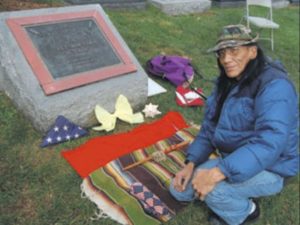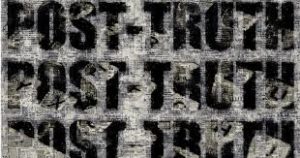Thomas Merton
January 20, 2019Descending into the crowed, the individual loses his personality and his character and perhaps even his moral dignity as a human being. Contempt for the “crowd” is by no means contemporary for mankind. The crowd is below man. The crowd devours the human that is in us to make us the members of a many-headed beast. That is why the monastery builds itself in the wilderness: cuts off communications with the world, and with the press and the radio, which too often are simply the voice of the vast aggregation that is something less than human. As a specialized, spiritual society, the monastic community must take care to form itself carefully in the atmosphere of solitude and detachment in which the seeds of faith and charity have a chance to sink deep roots and grow without being choked out by thorns, or crushed under the wheels of trucks and cars.
-The Silent Life
Outside the matrix.
“I keep coming back to a tweet from the Russian dissident and chess grandmaster Garry Kasparov, who wrote: “The point of modern propaganda isn’t only to misinform or push an agenda. It is to exhaust your critical thinking, to annihilate truth.” Mr. Kasparov understands that the real threat of the flood of “alternative facts” is that many voters will simply shrug, ask, “What is truth?” and, like Pontius Pilate, not wait for an answer.”
The Aspen Institute re-publishes a piece from American Magazine in 2017 from an Aspen Ideas Festival that same year with Charlie Sykes, MSNBC contributor and former conservative talk show host, currently editor-in-chief of the website The Bulwark.
“We might assume that people naturally want to seek out information that is true, but this turns out to be a basic misunderstanding of the human psyche and our new tribal politics. The social psychologist Jonathan Haidt describes the power of tribalism in shaping our ideas about truth. “Once people join a political team,” he writes in The Righteous Mind, “they get ensnared in its moral matrix. They see confirmation of their grand narrative everywhere, and it’s difficult — perhaps impossible — to convince them that they are wrong if you argue with them from outside the matrix.”
Mr. Haidt also cites the work of his fellow social psychologist Tom Gilovich, who studies the cognitive mechanisms of strange beliefs. If we want to believe something, Mr. Gilovich says, we ask, “Can I believe it?” and we need only a single piece of evidence, no matter its provenance, so “we can stop thinking” because we “now have permission to believe” what we want. The flip side is that when we are confronted with uncomfortable or unwanted information that we do not want to believe, we ask, “Must I believe?” and look for a reason to reject the argument or fact. Again, only a single piece of data is necessary “to unlock the handcuffs of must.”
The only antidote is an educated, critically minded electorate who can see through the hoaxes.”
Yes, absolutely. However, a deeper more complex follow-up question: is this a reasonable expectation, or possibility, in context of confirmation biases and deeper polarizations?
full article: https://www.aspeninstitute.org/blog-posts/truth-matter-no-longer-theoretical-question/
“And the fourth cycle (of computers), which is now arriving, shifts direction from the previous two (which were about connection more than processors) and brings prediction to the table. Call it AI if you want to, but to be specific, it’s a combination of analyzing information and then predicting what we would do if we knew what the computer knew.
The prediction of the fourth cycle isn’t simply done in a centralized location, because the previous cycle put the computer everywhere. So now, we’re connecting all the computers the way we previously connected all the people. Now, we’re giving those computers the ability to make predictions based on what thousands of people before us have done.”
-Seth Godin
Entrepreneur and blogger who thinks about the marketing of ideas in the digital age, teacher and former dot com guy.
“Really, really great.”

Nathan Philips, Omaha Nation, Vietnam Veteran:
“I heard, I heard them saying, ‘Build that wall, build that wall.’ You know, this is indigenous land, we’re not supposed to have walls here, we never did, for a millennium, before anyone came here we never had walls, we never had a prison. You know, we always took care of our elders, we took care of our children, we always provided for them, you know. We taught them right from wrong. I wish I could see that energy of those young men, put that energy into, you know, to make this country really, really great, you know. Helping those that are hungry.”
A story about Nathan from 2008.
Updated 1.21.19
An event captured on tape, obviously cruel in nature, is now being polarized onto a political side, those who wear red hats, and those who do not. It isn’t the act, right or wrong being judged, it is the ideology. It is clear how this young student was treating a native elder, as were his schoolmates…long or short version. And justice, again, belongs to those who can afford it, including hiring the services of a PR firm to spin what we can plainly see.
“Injustice anywhere is a threat to justice everywhere.” –MLK

